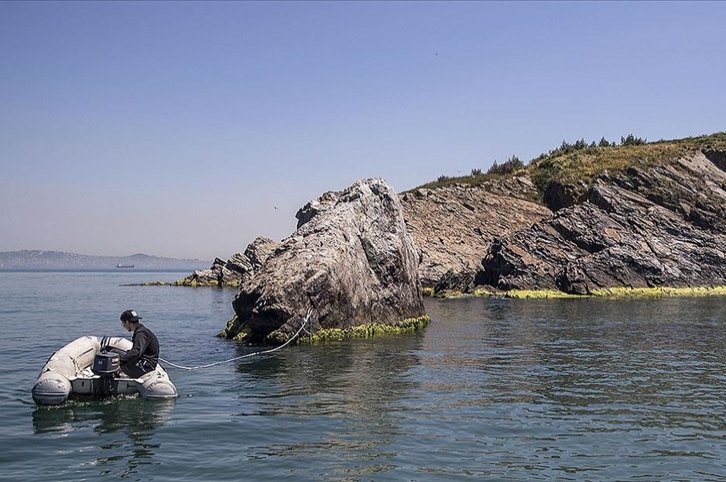
Scientists have completed a study evaluating the effects of marine mucilage, also known as sea snot, on the Marmara Sea in terms of public health after approximately eight months of work.
Commenting on the research, the head of the Food Safety Department at Istanbul University's Faculty of Aquatic Sciences, professor Nuray Erkan said: "Within the research study, toxins such as mercury, lead and cadmium were found in the fish samples taken from Istanbul and the Dardanelles and were within the limit values of the Turkish Food Codex Contaminants Regulation."
Erkan explained that they were aware of how the sea snot problem started because fishermen started to complain months before the biggest and most intense build occurred in the Marmara last May.
She noted that the sea snot density increases with the increase in air temperatures in the spring months.
"During the pandemic, we constantly advised people to consume fish and fish products for healthy nutrition and a strengthened immune system. However, people were concerned about sea snot. They were worried that it could affect their health after they consume fish. However, fishing was banned when sea snot was seen for the first time in the Marmara," she explained.
Omega-3 content
She emphasized that the main purpose of the research is to examine the effects of the seafood caught from the Marmara Sea on public health.
Erkan drew attention to the high pathogen load and diversity, especially in the months of September, October and November, when the water temperature is high, noting that food poisoning and diseases are more prevalent at the start of the fishing season.
"When we looked at the nutrient composition in the samples we received, we found that the Omega-3 level decreased compared to previous years. In addition, it has been observed that there is a certain decrease in the stocks of these species offered for consumption," she said.
The professor also explained that the Marmara Sea is the second most important sea in Türkiye in terms of economic species and nutritive value, underlining the importance of sustaining the valuable food source.
Erkan stressed that the seas should be protected and all precautions should be taken. "We need to teach our people the basic principles of food safety, clean and hygienic conditions and consumption points that have quality and food safety certificates," she underscored.
"There is no harm in consuming fish caught from mucilage water if you purchase or eat fish at places where there is a food safety system in place," she added.
